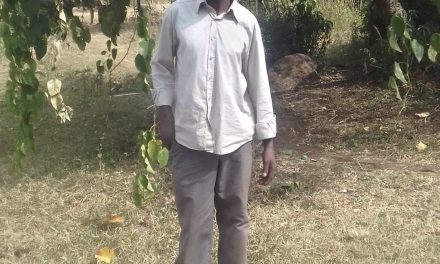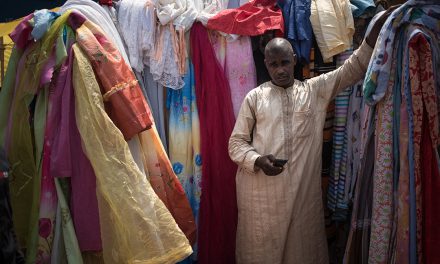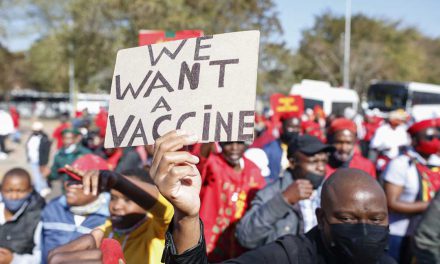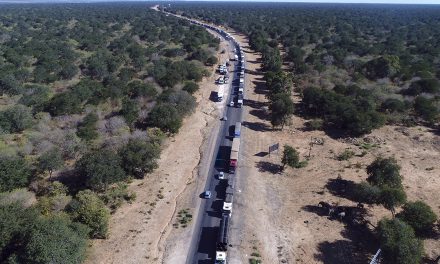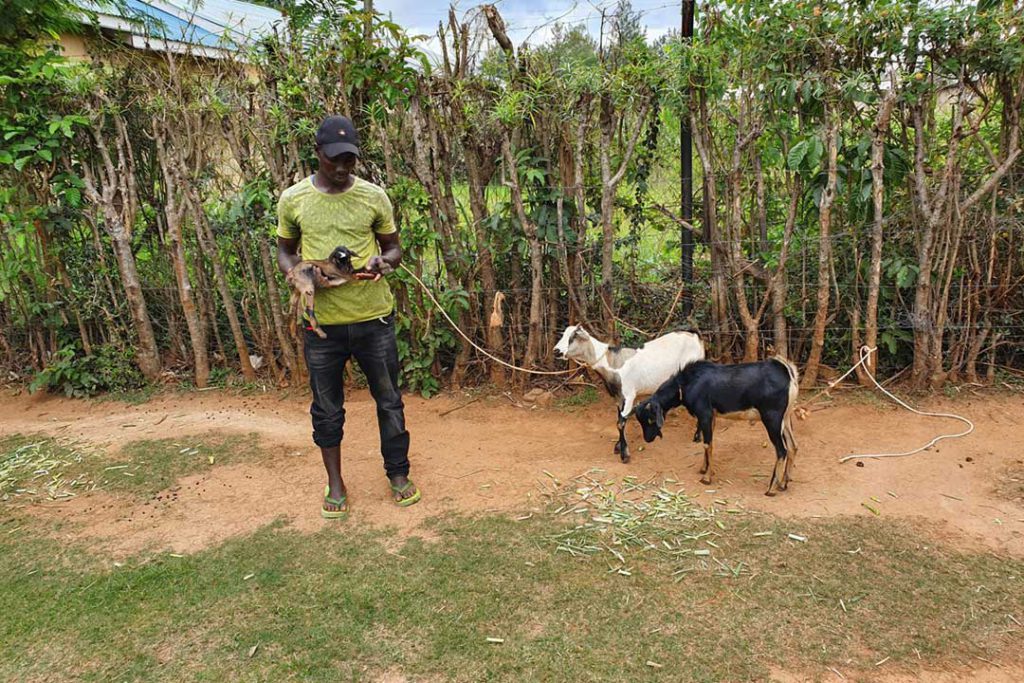
Musembe with some of his livestockPhoto: Justus Wanzala
It is a hive of activity on Enock Musembe’s farm, which is part of his homestead on the outskirts of Busia town in western Kenya. Immersed in his chores, Musembe appears unbothered by the deafening cacophony of noise from the various domestic animals – pigs, cows, poultry, and goats – on the farm. He tells Africa in Fact that he’s “busy from dawn to dusk”.
This, however, was not the situation just over a year and a half ago. Musembe was then based in Kenya’s capital, Nairobi, where he worked in a hotel, until his sojourn in the city was interrupted by the advent of COVID-19. Measures put in place to curb the spread of the pandemic had a huge negative effect on jobs, especially in the hospitality industry, and like elsewhere on the continent, Kenya witnessed massive job losses.“I worked in a hotel for four years,” he says.
“After the government introduced measures to curb the spread of COVID-19 in March last year, I lost my job due to heavy losses the company was incurring.”For two months, he took on casual jobs but they were not enough to sustain his family. “I decided to go back to my home county and farm my two hectares.”The farm is in a peri-urban area, which offers a ready market for its produce. Musembe, who had gained some agricultural experience by working on a farm after school, says the money he’d saved while working in Nairobi gave him much-needed capital.
He planted pasture, put up structures such as pens and watering areas, and bought three dairy cows and eight egg-laying hens, and later added goats. “It didn’t take long before the cows calved. They produce an average of 12 litres a day, and from the outset, there has been such heavy demand for milk that I’ve been unable to satisfy it. I sell the milk to my neighbours and the income generated enables me to purchase drugs and commercial feeds,” he adds. “I’m able to meet my daily needs and save money for a rainy day, much more so than I was even able to when I had a job in the city.”
Musembe’s unplanned detour into agriculture has had a transformative impact on his family, with the income he earns making an immense improvement to their living conditions. “They are satisfied with my decision to venture into farming because, other than income, their state of nutrition has also improved. We no longer, for example, buy eggs, milk and even, to an extent, chicken, because they are now all readily available.” There are challenges. One is the cost of commercial feeds and drugs for treating and managing livestock diseases. “Farmers were left out of the government’s COVID-19 related stimulus packages that saw several sectors funded or taxes reduced,” he laments.
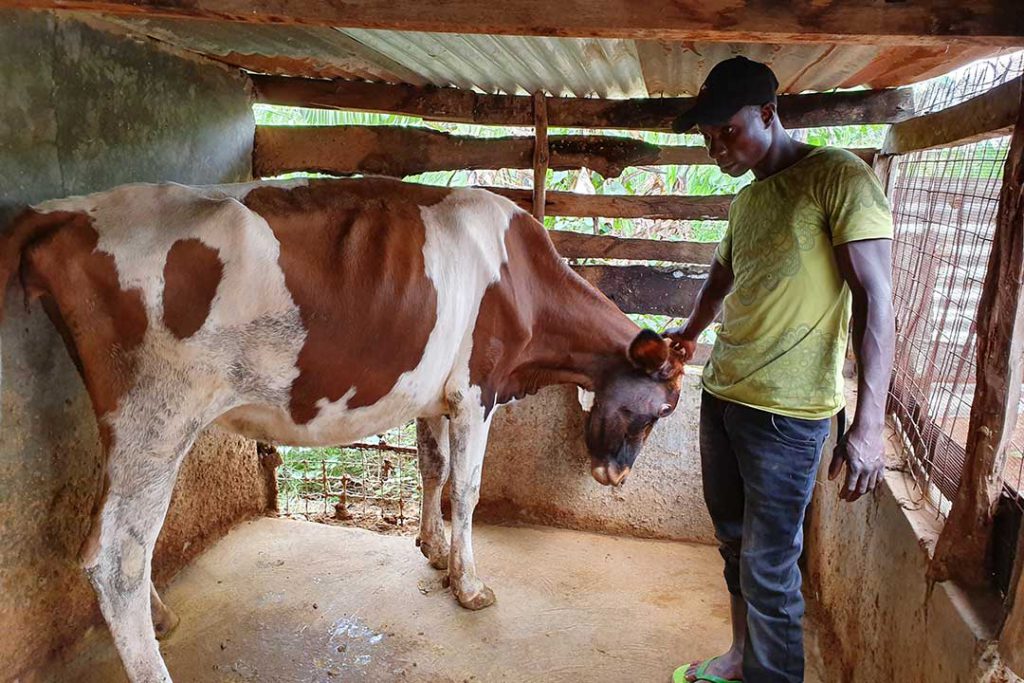
With limited extension services support, Musembe has joined other farmers in his area to share ideas on better livestock husbandry and sourcing quality inputs at reasonable prices. “As a group, we have a veterinary doctor who offers advice and treats our animals collectively, and we have formed a savings co-operative society to access loans,” he adds.
Musembe is just one of many Kenyans and other wage earners across sub-Saharan Africa who have been compelled by the pandemic to migrate back from urban to rural areas to rebuild their lives. There is no specific data on the phenomenon, but commenting on how livelihoods had deteriorated in sub-Saharan Africa due to COVID-19, World Bank official Pierella Paci noted in a blog earlier this year that, “The strict mobility restrictions imposed in most countries have severely disrupted economic activities and, despite some signs of recovery, employment remains below the pre-pandemic levels.”
But this scenario has also been a boon, as people like Musembe have returned to rural areas where for decades, migration was in the opposite direction. Among the COVID-19 “returnees” are young, skilled, educated and energetic people who left their rural homes for cities, leaving behind ageing populations, most of them women and children – a situation that has stunted economic development. Chris Macoloo, Africa’s regional director for World Neighbors (WN), an international development organisation that runs projects to uplift rural communities, agrees that layoffs in many economic sectors as the pandemic intensified “led to a reverse migration of people leaving cities and going back to their rural areas of origin”. The migration, he observes, has had many consequences for rural development in terms of the economy and food security.
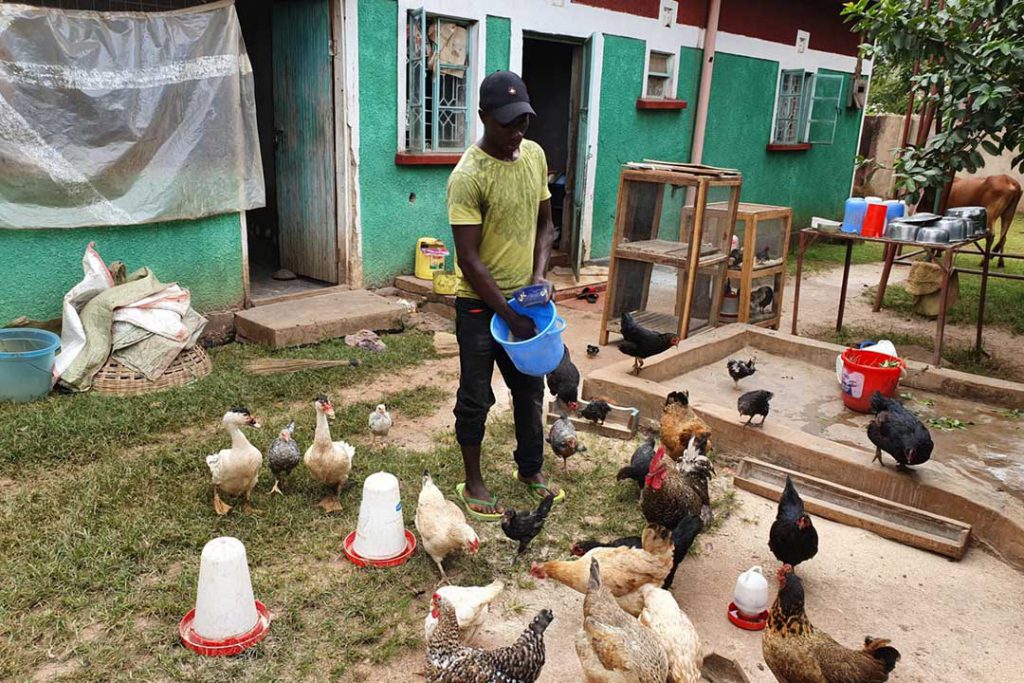
The returnees have had to find novel ways to survive, finding niches for themselves to earn a living. “This phenomenon has been a blessing in disguise for the rural economy. People with skills that were unavailable in rural areas are now there,” he says. According to Macoloo, the growing number of skilled people moving back has also led to more competitive prices for services. This has meant lower costs for service providers such as carpenters, masons, electricians, plumbers, as well as people from the hospitality industry, who have set up eateries in rural trading centres. Some returnees have found a niche in the transport sector, starting motorcycle public transport businesses (boda boda in East Africa).
Roselyn Akombe, a regional governance and peacebuilding coordinator for the United Nations Development Programme (UNDP), says small-scale farmers account for 80% of production in Africa and Asia, which is why UNDP focuses on local governance and development. “We believe that investing in local development remains the key to unlocking Africa’s promise, including Sustainable Development Goals (SDGs) 1 and 2 (eradication of poverty and hunger by 2030),” she explains. With more people moving to rural areas, there is potential for the use of digital technologies to facilitate access to information on prices, weather, and training, she points out. But, she cautions, “While there is potential for an increase in food production due to urban-rural migration triggered by COVID-19, it is worth noting that this also increases the pressure on local governments to deliver services.”
This new migration also has the potential to channel investment into rural economies that have been neglected in favour of urban centres. According to Macoloo, investment in farming has already resulted in the setup of supply shops (Agrovet shops) that provide various inputs such as irrigation drip kits, seeds, shade nets, and livestock and fish feeds. A change of mindset about agriculture is also emerging. Macoloo says people who have lost their formal-sector jobs switching to agriculture has meant that farming will no longer be viewed as a subsistence activity, but rather as a business.
Macoloo foresees that several other sectors are also likely to thrive in this scenario, including public motorcycle transport systems, construction and ICT services, all of which will have a positive impact on current inequalities between cities and their hinterlands. As alluded to by Akombe, Macoloo agrees that this migration back to rural areas will also impact on the attainment of the SDGs. “People in rural areas who depended on remittances from relatives working in towns to buy food have been ‘forced’ to change their behaviour by participating more actively in food production,” he says. There are potential pitfalls, he notes. Migration, for example, has increased the risk of transmitting COVID-19 to the old and other vulnerable people.
Kimbowa Richard, a programme manager at Uganda Coalition for Sustainable Development, says migration back to rural areas is accelerating agricultural production, but also increasing vulnerability as landowners who’ve returned from urban areas decide to invest in land, causing displacement of the poor and vulnerable who’ve been using the land. If not monitored, he says, the situation might set in motion unprecedented environmental degradation as urban migrants seek “re-start up” capital – hacking down trees for firewood and charcoal, as well as mining sand and clay for bricks to generate income. But Musembe is upbeat. “COVID-19 has led me to appreciate the role of agriculture as a source of livelihood not just for subsistence. This is its positive aspect to me,” he says.
Agribusiness is fraught with challenges, testing the resilience of new entrepreneurs. The incubation period for farming ventures to stabilise is long and needs patience, Musembe says. He plans to expand his venture twofold in the next four years. “I want to be a role model for people who lost their livelihoods due to COVID-19 and others without income. It can be done.”

